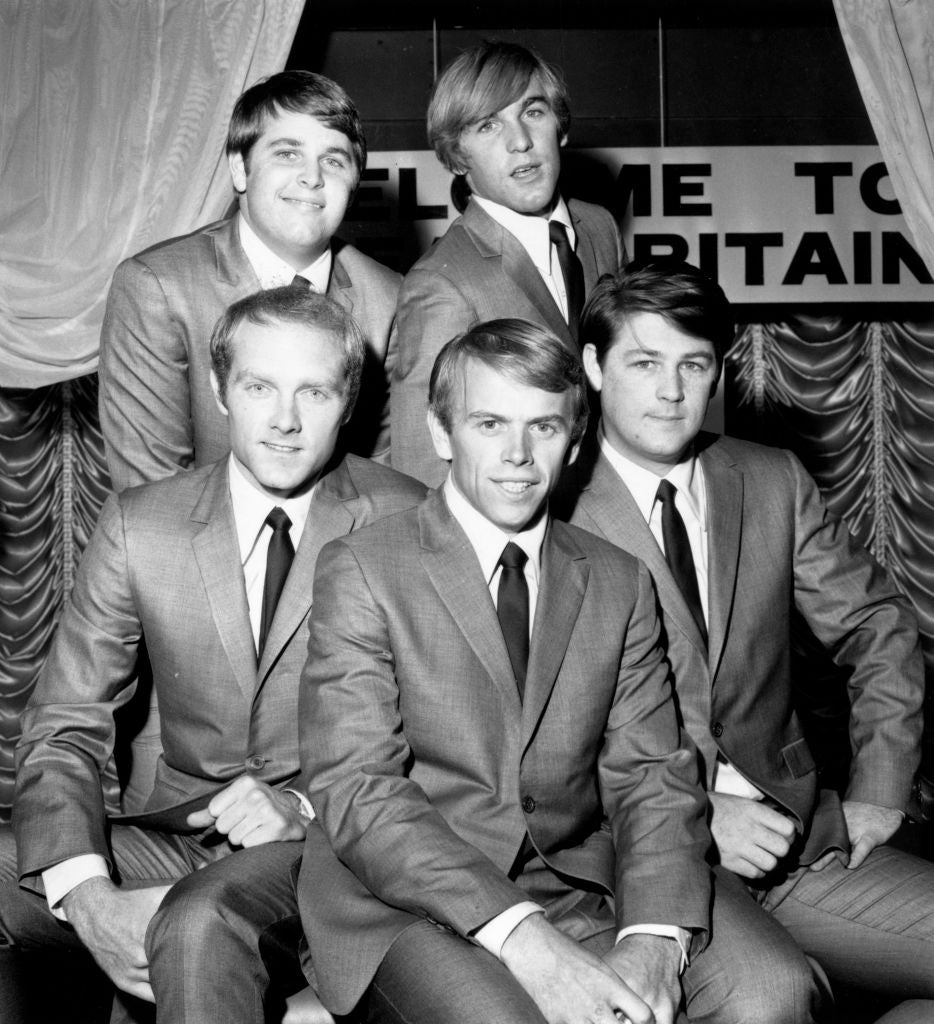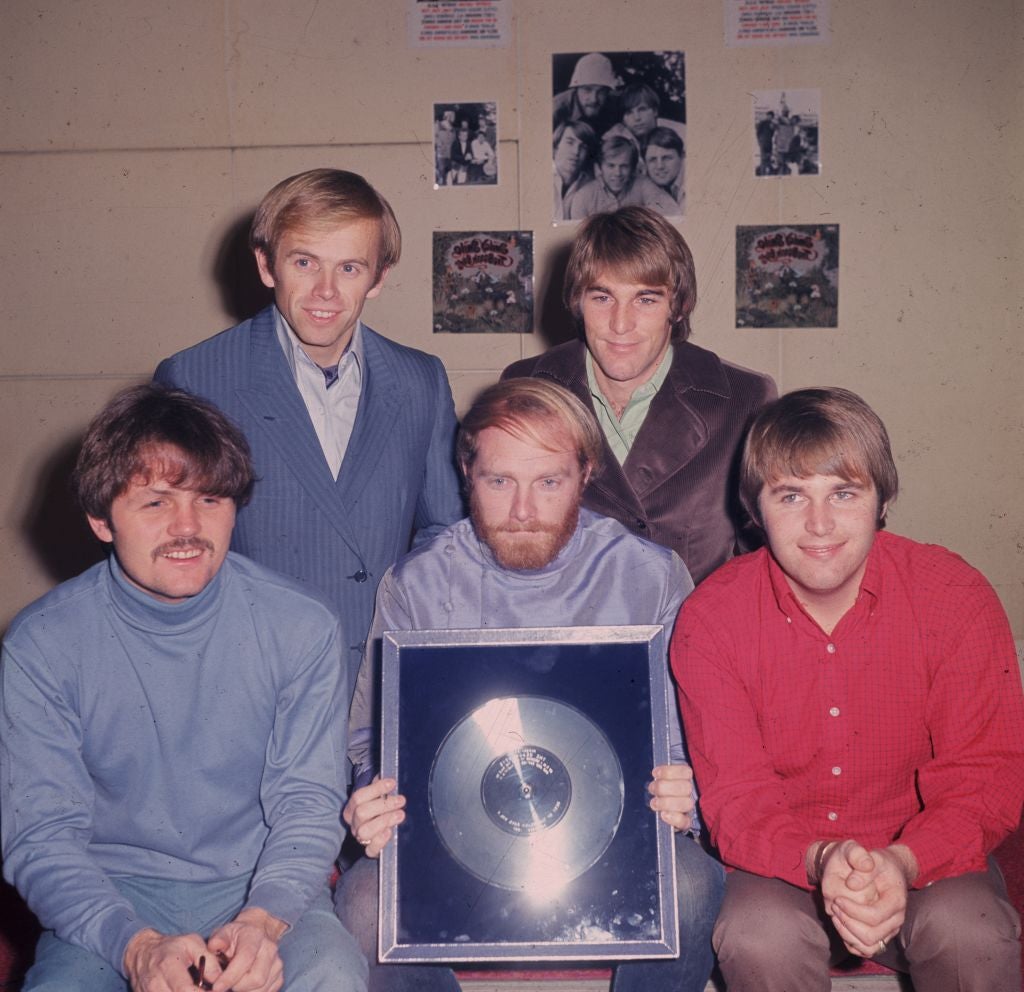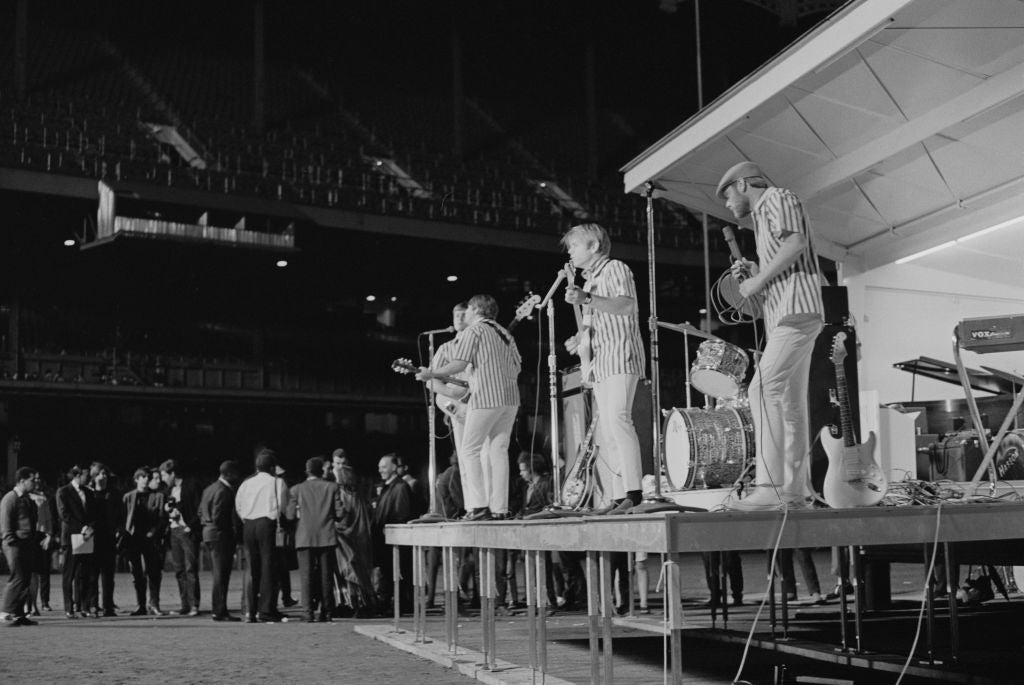The Beach Boys reflect on ‘rivalry and respect’ for The Beatles
Exclusive: Beach Boys stars Mike Love and Brian Johnston, along with director Frank Marshall, reflect on fame, fortune and family ahead of a new documentary about the legendary California band
Your support helps us to tell the story
From reproductive rights to climate change to Big Tech, The Independent is on the ground when the story is developing. Whether it's investigating the financials of Elon Musk's pro-Trump PAC or producing our latest documentary, 'The A Word', which shines a light on the American women fighting for reproductive rights, we know how important it is to parse out the facts from the messaging.
At such a critical moment in US history, we need reporters on the ground. Your donation allows us to keep sending journalists to speak to both sides of the story.
The Independent is trusted by Americans across the entire political spectrum. And unlike many other quality news outlets, we choose not to lock Americans out of our reporting and analysis with paywalls. We believe quality journalism should be available to everyone, paid for by those who can afford it.
Your support makes all the difference.The rivalry between The Beach Boys and The Beatles went hand-in-hand with “respect and mutual admiration”, the surfer rock group’s co-founder Mike Love has said.
Speaking to The Independent ahead of a new Disney documentary, Love and his bandmate Bruce Johnston, along with director Frank Marshall, reflected on the ups and downs that followed their rise to fame in the early Sixties.
“It was wild,” Love, 83, said in an interview at the famed Abbey Road studios in London – the same studio where The Beatles recorded many of their biggest and best-known songs. “We loved their stuff, it was exciting. But we were doing OK!”
Formed in Hawthorne, California, in 1961 by brothers Brian, Dennis and Carl Wilson, their cousin, Love, and friend Al Jardine, The Beach Boys achieved international success thanks to hits such as “Surfin’ USA”, “Wouldn’t It Be Nice”, “God Only Knows” and “Good Vibrations”.
Competition arose in 1964 when Beatlemania landed in the US, as Paul, John, George and Ringo scored their first No 1 hit in February with “I Want To Hold Your Hand”, eight days before their legendary appearance on The Ed Sullivan Show.
Brian Wilson, by then growing disillusioned by the early Beach Boys sound, was struck by the power of the British Invasion and spurred on to keep his own band as relevant and innovative as possible. Three months after “I Want To Hold Your Hand”, The Beach Boys achieved their first No 1 with “I Get Around”.
Over the years, he acknowledged on a number of occasions how The Beatles influenced some of his greatest work, describing their 1965 album Rubber Soul as “probably the greatest record ever”.

“[It] sent me right to the piano bench,” he wrote in his 2016 memoir, I Am Brian Wilson. “It wasn’t just the lyrics and the melodies but the production and their harmonies… [it was] almost art music.” McCartney returned the compliment upon the release of The Beach Boys’ “God Only Knows”, calling it his favourite song of all time.
The two bands also joined one another at Indian meditation guru Maharishi Mahesh Yogi’s retreat at Rishikesh, northern India, in 1968.
Enjoy unlimited access to 100 million ad-free songs and podcasts with Amazon Music
Sign up now for a 4 month free trial (3 months for non-Prime members)
Enjoy unlimited access to 100 million ad-free songs and podcasts with Amazon Music
Sign up now for a 4 month free trial (3 months for non-Prime members)
“We were together in India in 1968, so there was respect and mutual admiration, but there’s always that competitiveness among so many great artists,” Love said. “It was a great period of time.”
Johnston, 81, said the documentary – which highlights the contributions of each band member and pushes back against the notion that Brian was the lone genius responsible for The Beach Boys’ success – shows how “everybody got the chance to flex their own talent” while recording what is now regarded as their greatest record, 1966’s Pet Sounds, which he compared to The Beatles’ White Album.

“I was surprised they made a documentary,” the musician, who joined the band on 9 April, 1965, said. “I’m not trying to be humble, but I thought, gosh I hope there’s enough to film! I guess there was! I’m thrilled, happy, and glad I get to walk around on the screen for a few blocks.”
Love said he felt the documentary does a “fantastic job” of packing six decades’ worth of history, comprising all the band’s ups and downs – including Brian Wilson’s health issues – into two hours.
“We’re very fortunate and blessed to be able to tell our story,” he said. “It is melancholy, in some ways, a couple of the guys are no longer with us. Brian’s had his issues. But, the culmination of it is, we get to get back together and we’re reminiscing and we’re singing, and that part is great.
“It’s a story of a family that started with harmonies and a love of music.”

Marshall, the renowned producer and director behind blockbusters including the Bourne franchise, Hook, Assassin’s Creed, and Jurassic World – as well as documentaries about Paul McCartney and The Bee Gees – told The Independent that he hoped his documentary would showcase each bandmember’s talent as individuals and how the group together was “this incredible magical blend”.
“Some people think there’s a simple surf band, but they’re not, they’re really complex musically and particularly [in] their harmonies,” he said.
“Certainly Brian was the producer and the arranger, but it’s the blend, it’s the specific blend that they all had, and they all brought something, and without one or the other wouldn’t be the same.”

Like Love and the Wilson family, Marshall also grew up in California surrounded by music. His father, Jack Marshall, was an early pioneer of surfer guitar rock and composed the theme to the TV show Karen, which The Beach Boys sang, in 1964. He was also a surfer, and inspired his father’s 1963 album, My Son the Surf Nut.
“We grew up 24 miles south of Hawthorne in Newport Beach,” he said. “I was a surfer. I had a surf band, but it was only instrumental. So when the Beach Boys came around with lyrics, I was really paying attention to what they were doing.”
Asked why now felt like the right time for a Beach Boys documentary, Marshall, 77, suggested that music documentaries are experiencing a “renaissance” and noted the 60th anniversary of a number of milestones for the band, including the release of “I Get Around”.
“It was the right time to get everybody together and tell their story,” he said.

In a poignant moment at the end of the documentary, Brian Wilson is shown at Paradise Cove – where the band shot their album covers for Surfin’ Safari (1962) and Surfer Girl (1963) – being reunited with his surviving bandmates on camera for the first time in years.
“That was a dream of mine,” Marshall said. “As I was shooting and putting things together, I thought, you know, how am I going to end this? And wouldn’t it be great to get them all back together in that spot?
“They hugged, they cried, they laughed. They told stories. They sang together. It was just magical. There’s a lot of water under the bridge. And it went out into the ocean that day because they’re basically family. They love each other.”
‘The Beach Boys’ will be streaming on Disney+ from 24 May. ‘The Beach Boys’, the official book is available now.

Join our commenting forum
Join thought-provoking conversations, follow other Independent readers and see their replies
Comments